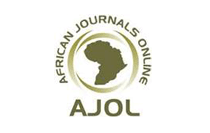Mansoura Veterinary Medical Journal
Document Type
Original Article
Subject Areas
Anatomy and histology
Keywords
Buffalo, Incisors, morphogenesis, Teeth
Abstract
Objective: The teeth play important roles in food mastication, prehension and defense against predators. Although several studies demonstrated the development of teeth in different mammalian species, no data are, to our knowledge, available in Egyptian buffalos. Therefore, the present investigation was conducted to study the development of incisor teeth in buffaloe. Design: Descriptive study. Animals:seventeen buffalo embryos and fetuses of both sexes were used. Their crown vertebral rump lengths (CVRL) ranged from 2 to 46 cm (equivalent to 38 - 177 days old). Procedure: Embryos and fetuses were fixed in 10% neutral buffered formalin and decalcified by 14% EDTA solution for several weeks. The samples were dehydrated, cleared and embedded in paraffin wax using standard techniques. Sections were cut on Leitz microtome and mounted on uncoated slides. For general histological structure, a selection of slides was routinely stained with haematoxylin–eosin and examined by the light microscope. Result: The present study reported for the first time that the prenatal development of incisors in buffalo passes through three sequential stages: the bud, cap and bell stages. Although each stage was easily differentiated based on its form and its distinct developmental features, the three stages were overlapped with each other’s. Generally, the bud stage was observed in 11 cm CVRL buffalo fetuses, meanwhile the cap and bell stages were detected in 23 cm and 30 cm CVRL fetuses respectively. Conclusion and clinical relevance: These results can be used as inductive index for determination of the ages of buffalo embryos and fetuses.
How to Cite This Article
Mostafa, Mohamed; El-Sayed, Mesbah; Farag, Salah; and Youssef, Galal
(2020)
"Prenatal Development of Incisors in the Egyptian Buffalo (Bos bubalis).,"
Mansoura Veterinary Medical Journal: Vol. 21:
Iss.
3, Article 4.
DOI: https://doi.org/10.21608/mvmj.2020.21.314
Receive Date
2020-02-13
Accept Date
2020-05-20
Publication Date
9-1-2020






